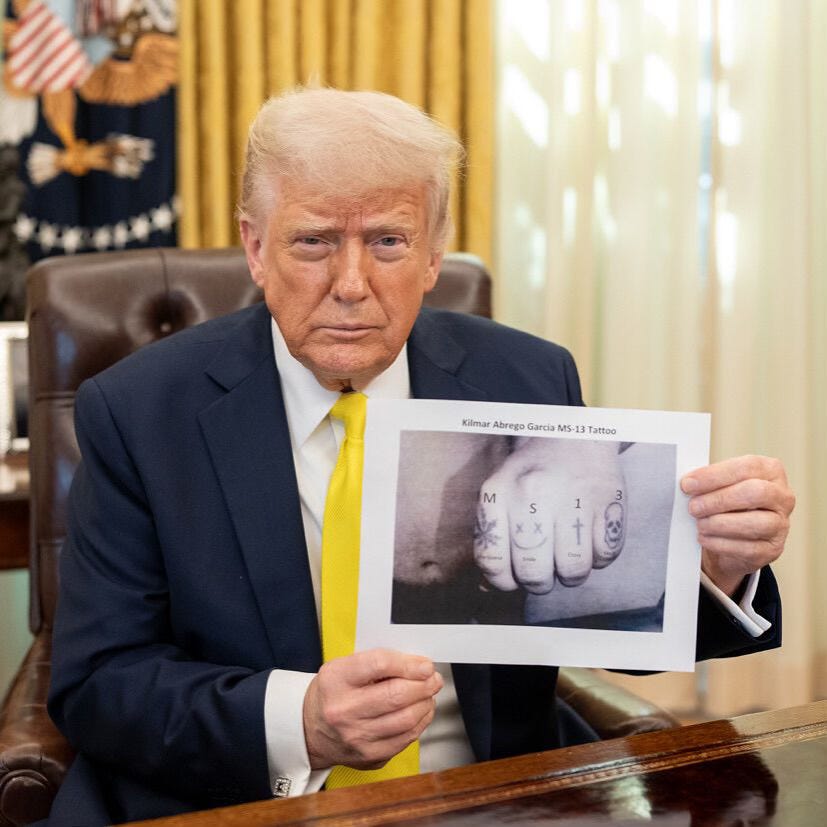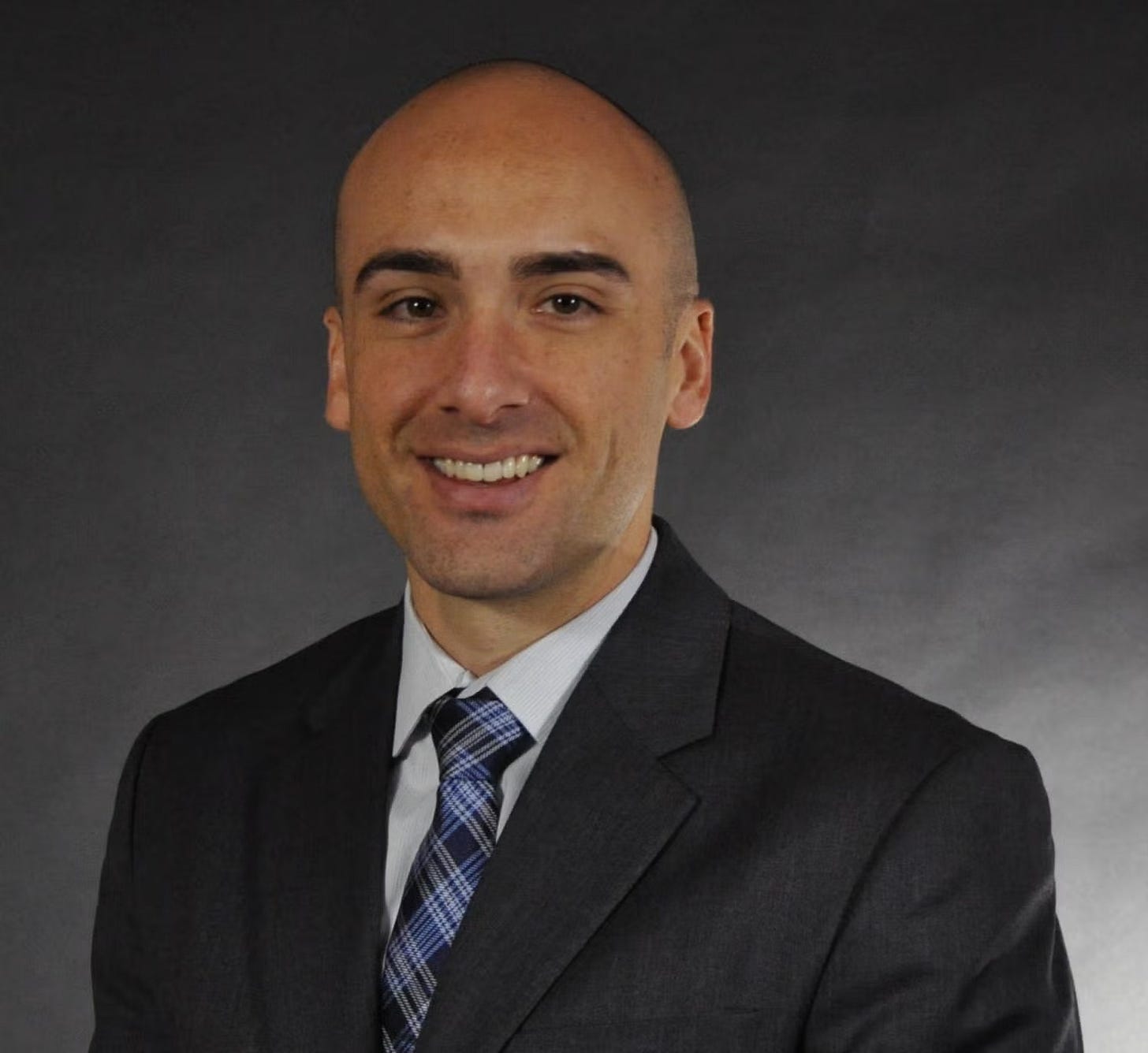What does it mean to be a "gang member?" Some researchers actually want to know.
Few people remain in their gang forever. Understanding why they join and why they leave is an important area of study. Some brief profiles of those who do it.
Readers who have been following the dramatic battle between the Trump administration on one side, and immigration rights advocates/civil libertarians on the other, over the deportation of immigrants without due process will certainly be familiar with the case of Kilmar Abrego Garcia. The government claims Abrego Garcia is a member of the MS-13 gang, while his wife and his attorneys insist this is not true—and that he came to the United States to escape from threats to him and his family from El Salvador’s Barrio 18 Gang.
At times, the central issue of due process, to which he is entitled no matter what evidence the government claims to have against him, has gotten lost among claims and counterclaims over whether he is a gang member, a human trafficker, or a wife beater. At the moment, his case is working its way through the courts, guided judicially by an unambiguous 9-0 U.S. Supreme Court decision that the Trump administration must “facilitate” his return to the U.S. so he can have the due process to which he is entitled. The administration, of course, is resisting compliance with this basic order with every legal (and not so legal) sleight of hand it can muster.
Perhaps it is understandable that while the court battles go on, some people continue to debate whether Abrego Garcia deserves to stay in the United States not based on his legal rights but on who he allegedly is, or is not. Central to this argument is whether Abrego Garcia is a member of the MS-13 gang, something he denies.
Most readers will be aware that President Trump made a fool of himself recently by showing a photo of Abrego Garcia’s fingers that was obviously photoshopped to add the letters and numbers MS-13. [In later interviews, Trump clearly still believed that these were actually part of the tattoo.) And there have been a number of media articles questioning whether tattoos are any reliable indication of gang membership.
The most recent, and perhaps one of the most detailed, of these stories was published just yesterday in the New York Times, an article by reporter Juliet Macur. The journalist interviewed three academic experts on gangs, plus the owner of a tattoo shop near where Abrego Garcia lived in Maryland; all of them expressed considerable skepticism that his tattoos were any indication of membership in MS-13 or any other gang.
But what struck me is that the experts consulted by the Times were all scholars who studied gangs and had done so for many years, in large part with the aim of trying to understand why young people join gangs, why they stay, and why they often eventually leave. In other words, rather than treating the term “gang member” as the Trump administration and those convinced by its anti-immigrant rhetoric do—as a branding that allows complete dehumanization of an individual to the point where we are not supposed to care if he spends the rest of his life in a brutal prison in El Salvador—these researchers treat their subjects as human beings, even in cases where they have committed violent crimes.
In fact, some journalists have reported that Trump’s fixation on MS-13, which dates from long before even his first term as president, has made it harder for the victims of the gang to get asylum in the United States.
So I took a quick look at who the experts cited by the Times are and what they have studied and published. It was interesting to say the least.
Jorja Leap is an anthropologist at UCLA, a member of the Social Welfare Department since 1992. Her current work focuses on gangs and community justice, prison reform, and the struggles of gang members and others re-entering society after prison. She has served as a policy advisor to Los Angeles County and other government bodies.
(See a ten minute video about her work at the top of this post.)
Among other things, she has studied and evaluated the nationwide gang rehabilitation organization Homebody Industries, which began in Los Angeles but now has operations or networks across the U.S. and in several other countries.
José Miguel Cruz is an expert in transnational gangs at Florida International University. He has interviewed more than 2,000 members of international gangs across Central America, including MS-13. Cruz’s research focuses on the various factors that induce members to leave their gangs, as well as why some gangs, such as MS-13 and Barrio 18, become established in some countries but not others. One aspect of his research is the role that religious communities play in sheltering former gang members while at the same time reassuring the gang itself that its former members will not act against it.
David Pyrooz is a sociologist at the University of Colorado, Boulder. He has written or edited six books about gangs, including the seminal 2022 volume “On Gangs.” His research focuses on the science of gang intervention in the Denver area and elsewhere, and also on the criminal and non-criminal aspects of gang organization (gangs obviously fulfill a need for community that some members might not get elsewhere.) Like the other two academics above, Pyrooz is interested in the process by which gang members eventually leave their organizations and adjust to life in outside society.
Obviously these are just three among many researchers who study gangs and gang members. But what they have in common is that they treat even the most violent gang members as human beings who can, in some cases, be rehabilitated.
That brings us back to Kilmar Abrego Garcia. What if he really was, at one time, a member of MS-13, despite the very flimsy evidence for that accusation? Is there any evidence that he still is? There certainly is no evidence, at least that the Trump administration has presented, that Abrego Garcia has committed any serious crimes, violent or otherwise.
The same question goes for another accusation that has been aired against Abrego Garcia, that he earlier engaged in domestic abuse against his wife, Jennifer Vasquez Sura. She has told the press that the couple worked out their issues through counseling. At the very least, she is not asking the Trump administration or the government of El Salvador to imprison her husband at the notorious CECOT for the rest of his life. She wants him home with her and their children.
So those Trump supporters who claim to be defenders of abused women (already an oxymoron) while at the same time insisting that her husband be banished forever are, at the least, not deferring to her own wishes.
Indeed, that situation points to one of the lowest, dirtiest aspects of the Abrego Garcia case. Trump, his minions, and his supporters are free to say whatever they want about the man, but he is not here to defend himself. He has not been given due process, the basic right to make his case in court. To deny him that is not only unconstitutional, as the U.S. Supreme Court and an appeals court have already affirmed; it is cowardly and dishonorable.
Let’s bring him home and hear what he has to say.
********************************************************************************************************
To share this post, or to share “Words for the Wise,” click on these links.
Comments policy: Please be polite and respectful at all times.







